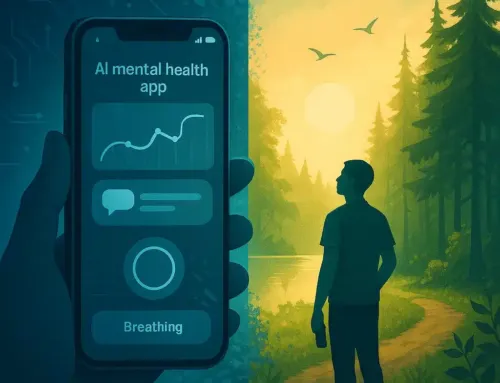
Approx. read time: 6.1 min.
Post: Spend with Purpose: How Saying No Can Lead to Peace, Not Deprivation
Budgeting for peace and financial freedom. We live in a world that constantly whispers (or screams): Buy this, upgrade that, keep up. It’s a never-ending race, and often, we don’t even remember signing up for it.
But the truth is simple and radical: you don’t need more to feel better—you need less, done smarter.
Welcome to the life-altering power of saying no.
Not just to stuff, but to stress. To debt. To fake urgency. To emotional clutter disguised as financial “opportunity.” This is about living within your means, knowing your true needs, and budgeting for peace instead of pressure.
Whether you’re a 20-something trying to make rent or a 50-something looking for a financial reset, the principles are the same—and the freedom is real.
Needs vs. Wants: Learn the Difference, Change Everything-Budgeting for peace and financial freedom
Let’s be honest: most of us blur the line between what we need and what we want.
You need food.
You want Uber Eats three nights a week.
You need clothes.
You want to revamp your wardrobe every season.
You need shelter.
You want the upgraded apartment with rooftop access.
This isn’t about guilt—it’s about clarity. When you see your wants for what they are, you’re no longer controlled by them. You regain power over your money, time, and emotional energy.
Here’s a quick mental test:
If your income were cut in half today, would you still buy it?
If the answer is no, it’s probably a want, not a need.
Saying No Isn’t Negative. It’s Strategic.
Saying no isn’t about being stingy. It’s about being smart.
Every time you say “no” to something that doesn’t serve you, you’re actually saying:
-
Yes to freedom from financial stress.
-
Yes to time and energy for what truly matters.
-
Yes to your long-term goals over short-term dopamine hits.
You don’t owe anyone—friends, family, advertisers, influencers—a “yes” that costs you your peace.
In fact, saying no is a wealth-building habit. It builds savings. It breaks cycles. It opens doors to opportunities that don’t come with a price tag.
Budgeting for Happiness and Peace: The 3-Bucket System
Traditional budgets often feel like punishment. But when you shift the focus from restriction to intention, budgeting becomes a path to freedom, not a chore.
Here’s a simple but powerful system:
1. Essentials (Survival & Stability)
-
Rent/mortgage
-
Groceries
-
Utilities
-
Healthcare
-
Transportation
These come first, no matter what. These are your real “needs.”
2. Peace Builders
-
Emergency fund
-
Debt payoff
-
Retirement savings
-
Insurance
-
Investing (even small amounts)
This bucket doesn’t give instant gratification, but it gives you something better: security and peace of mind.
3. Joy with Limits
-
Dining out
-
Travel
-
Hobbies
-
Tech gadgets
-
Streaming services
This is where the wants live. You don’t have to eliminate them—just cap them. Joy is allowed. You just don’t let it sabotage your essentials or peace.
When you divide your money this way, you protect yourself from chaos and still leave space for living.
Books That Will Change Your Financial Mindset-Budgeting for peace and financial freedom
If you want to deepen your knowledge and build lasting habits, these books are trusted, tested, and speak to different life stages.
For Young Adults:
-
I Will Teach You to Be Rich by Ramit Sethi
Real talk, practical steps, and a heavy focus on automation. Great for anyone starting out or wanting to feel in control without micromanaging every dollar. -
Your Money or Your Life by Vicki Robin
Focuses on the idea that every dollar you spend is time you’ve worked. Forces you to reframe consumption and align spending with values. -
Broke Millennial by Erin Lowry
If you’ve ever felt behind or overwhelmed by money, this book speaks your language without talking down to you. Very beginner-friendly.
For Older Adults or Those Looking for a Reset:
-
The Psychology of Money by Morgan Housel
Less about math, more about mindset. Helps you understand why we make irrational financial decisions—and how to stop. -
Money Honey by Rachel Richards
A short, clear, no-fluff book that demystifies money basics. Great for people who want to learn fast and act faster. -
The Barefoot Investor by Scott Pape
Aussie-based, but the advice travels well. Super hands-on with clear steps for budgeting, saving, and eliminating debt. Ideal for individuals and families.
Apps That Make Budgeting Actually Work
You don’t have to do this alone—or on paper. These budgeting apps can help you track, plan, and stay honest with yourself.
Top Picks for Beginners
-
Mint (Free)
Great starter app. Connects to your accounts, categorizes spending, and gives an overview of where your money goes. -
YNAB – You Need a Budget (Paid)
Offers a proactive approach: instead of tracking what you spent, it tells you what you can spend. Ideal for building long-term habits. -
Goodbudget (Free & Paid)
Uses the envelope system digitally. If you love visual limits, this helps you stop overspending by creating hard boundaries.
Simpler Tools for Older Adults
-
EveryDollar (Free & Paid)
Uses a zero-based budget model. Very clean interface. Great if you want a “do this, then that” system without frills. -
PocketGuard (Free & Paid)
Focuses on one key number: what you have “left to spend” after bills. Perfect for staying in your lane without doing mental math.
For Visual and Collaborative Budgeters
-
Zeta (Free)
Originally designed for couples, but great for anyone. Offers shared financial goals, bill tracking, and a very digestible layout.
This Isn’t About Sacrifice. It’s About Strategy.
When people hear “budget” or “cut back,” they immediately think of lack. But the truth is, what you gain is always bigger than what you lose.
You gain:
-
Mental clarity
-
Emotional peace
-
Long-term security
-
Room to dream
-
Power to walk away
Spending less isn’t about being “cheap.” It’s about being in charge. It’s about defining success on your terms, not someone else’s credit-fueled illusion.
Quick Start Checklist: How to Begin Today
If you’re ready to take control, here’s where to start:
-
Track your spending for 30 days.
Use an app or notebook. Get brutally honest. -
Separate your needs from wants.
Don’t judge—just list. -
Build a simple budget using the 3-bucket method.
-
Pick one financial book and read it cover to cover.
-
Download a budgeting app that fits your style.
-
Set one peace-focused goal (e.g., emergency fund, debt payoff).
-
Practice saying no once a day.
No to an impulse. No to a fake urgency. No to something you don’t need.
Final Word
You don’t have to be rich to be at peace.
You just have to stop letting money control you—and start telling it where to go.
Say no to pressure.
Say yes to purpose.
And watch how everything else gets easier.
Related Videos:
Related Posts:
Teaching Kids Financial Literacy: Empowering the Next Generation with Essential Money Skills
Freedom Mobile hit by data breach,15,000 customers affected
To Be Seen and Chosen: The Truth About Feeling Loved
AI is the future: Microsoft wants to usher it in responsibly
Breaking Free from Toxic Family Dynamics: How to Reclaim Your Peace and Own Your Life









